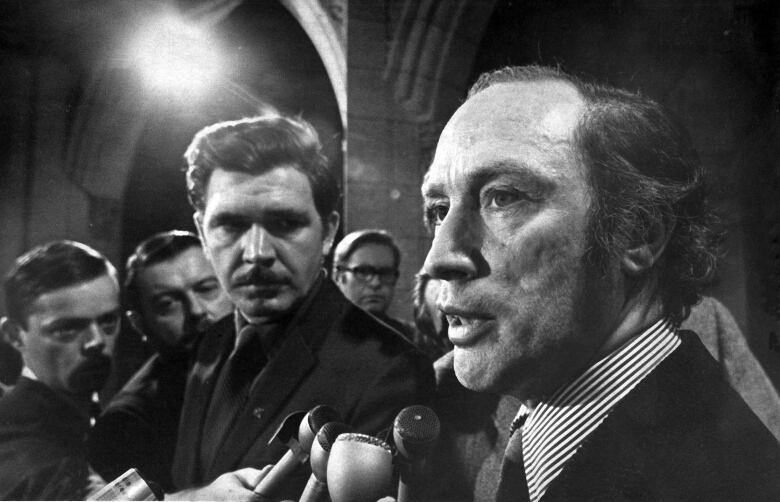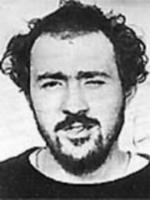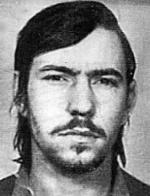The lasting legacy of the 1970 FLQ manifesto
Researcher Jean-Philippe Warren says the manifesto had a lasting impact on ordinary Quebecers
CBC Radio · Posted: Oct 13, 2020


Ideas53:58
By October of 1970, the Front de libération du Québec didn't have a lot to show for its seven year campaign of terror. But at the height of the October Crisis, the FLQ did succeed in one lasting achievement: its manifesto was broadcast across the country on the public broadcaster's airwaves.
The words in that document had more lasting power than the hundreds of bombs that had been the FLQ calling card since 1963, says Jean-Philippe Warren, research chair for the study of Quebec at Concordia University in Montreal.
CBC Digital Archives: What is the FLQ?
"The manifesto was part of that new coming of age of the Quebec nation where people were saying, 'Well, you know, we can express ourselves the way we want to express ourselves, the way we usually express ourselves. This is who we are and we should not be ashamed of who we are,'" he said.
From bombing to political kidnappings
The FLQ was pushing a radical vision of Quebec: one that was independent from anglophone Canada and which rejected the capitalist order.
But seven years of robberies and bombings had landed dozens of its members in jail without bringing them any closer to their stated goals. So in October 1970, they switched tactics from bombing to political kidnappings. They first abducted British Trade Commissioner James Cross and then Quebec Deputy Premier Pierre Laporte.
In exchange for the release of Cross, the abductors issued a list of demands. They were looking for the release of jailed FLQ members, bars of gold and safe passage to either Algeria or Cuba, along with a laundry list of other requests.

One by one, government officials rejected the demands, but they did cede on one point. The kidnappers had created a manifesto that laid out the FLQ's beliefs and vision for the transformation of Quebec. They wanted the document to be published and broadcast for the world to hear.
At first officials balked, fearing it would be giving terrorists a platform. But eventually they relented, and on Oct. 8, the manifesto was read on Radio-Canada by announcer Gaetan Montreuil.

FLQ manifesto read on-air
50 years ago
11:26Manifesto read on-air in Montreal on Radio-Canada during the October Crisis. (Note: Footage in French only.) 11:26
The text was steeped in quasi-Marxist ideology of class struggle. But it was delivered in a plain, direct language aimed at ordinary working class Quebecers. The FLQ wanted their audience to recognize themselves as the victims in a struggle for liberation. While the manifesto was delivered in French, it was peppered with English terms.
"The Front de libération du Québec wants total independence for Quebecers, united in a free society and purged for good of the clique of voracious sharks, the patronizing 'big bosses' and their henchmen who have made Quebec their private hunting ground for 'cheap labour' and unscrupulous exploitation," Montreuil read in French.
Concordia University's Warren says that use of English was strategic.
"Part of it is that these expressions are the ones that Quebecers usually use in ordinary life, in their day to day lives in the 60s. So they were not talking about les patrons, they were talking about the 'big boss' to emphasize the fact that people who controlled the finance, people who control the economy were Anglophone," Warren said, adding that the effect of this can't be underestimated.
Engaging with ordinary folk on big societal issues, he said, and doing it in their own language was still a pretty revolutionary idea in Quebec in 1970.
Coming of age for Quebec
"[It] was a time when Quebecers were seeking to see themselves differently," Warren said. "Prior to the 1960s, Quebecers were under the impression that they were never good enough. They were not speaking French properly. They were uneducated."
CBC Digital Archives: Francophone caller supports FLQ manifesto
Quebec playwright Robert Lepage included passages from the manifesto in his autobiographical play 887. He says the document is a significant piece of Quebec cultural history that still has power today.

"There was a kind of a poetry reading a couple of years ago where it was read by an actor who just acted it out the way it was written, and it's an amazing, amazing script. When you take the time to get into character and you do it, whether you like the ideas or not, it's an amazing piece of writing," said Lepage.
He says the manifesto tapped directly into the hearts of ordinary people and that that was really the FLQ's great victory. He says no one really remembers the details of the manifesto, but they remember how they felt hearing those words.
"The FLQ later said...we at least achieved something in that we managed to have a small patriot in every household that evening," Lepage said. "It was a patriot that walked into the houses and then into the apartments of Quebec people, who spoke for them."
This episode was produced by Geoff Turner and Jessica Linzey, with help from Matthew Lazin-Ryder.
RELATED STORIES
'Recall: How to Start a Revolution' podcast explores the October Crisis, 50 years later
Front de Libération du Québec
Manifesto of October 1970
Source: “The FLQ Manifesto,” Marcel Rioux, Quebec in Question (1971), tr. James Boake;
CopyLeft: Creative Commons (Attribute & ShareAlike) marxists.org 2004.
Issued by the Front de Libération du Québec and read over CBC/Radio-Canada Oct. 8, 1970 as a condition for the release of kidnapped British trade official James Cross. Cross had been kidnapped on October 5 by the Libération cell of the FLQ, and among their demands for his release was the reading of this manifesto on TV and radio. Three days later the Chenier cell kidnapped Quebec’s Labor and Immigration minister, Pierre Laporte. Cross was released by his captors on December 3 when their hideout was discovered; the felquistes were flown to Cuba. Laporte was found dead in the trunk of a car on October 17.
The people in the Front de Liberation du Québec are neither Messiahs nor modern-day Robin Hoods. They are a group of Quebec workers who have decided to do everything they can to assure that the people of Quebec take their destiny into their own hands, once and for all.
The Front de Libération du Québec wants total independence for Quebeckers; it wants to see them united in a free society, a society purged for good of its gang of rapacious sharks, the big bosses who dish out patronage and their henchmen, who have turned Quebec into a private preserve of cheap labour and unscrupulous exploitation.
The Front de Libération du Québec is not an aggressive movement, but a response to the aggression organized by high finance through its puppets, the federal and provincial governments (the Brinks farce, Bill 69, the electoral map, the so-called “social progress” tax, the Power Corporation, medical insurance — for the doctors, the guys at Lapalme...)
The Front de Libération du Québec finances itself — through voluntary (sic) taxes levied on the enterprises that exploit the workers (banks, finance companies, etc....).
“The money powers of the status quo, the majority of the traditional tutors of our people, have obtained from the voters the reaction they hoped for, a step backwards rather than the changes we have worked for as never before, the changes we will continue to work for.” (René Lévesque, April 29, 1970).
Once, we believed it worthwhile to channel our energy and our impatience, in the apt words of René Lévesque, into the Parti Québécois, but the Liberal victory shows that what is called democracy in Quebec has always been, and still is, nothing but the “democracy” of the rich. In this sense the victory of the Liberal party is in fact nothing but the victory of the Simard-Cotroni election- fixers. Consequently, we wash our hands of the British parliamentary system; the Front de Libération du Québec will never let itself be distracted by the electoral crumbs that the Anglo-Saxon capitalists toss into the Quebec barnyard every four years. Many Quebeckers have realized the truth and are ready to take action. In the coming year Bourassa is going to get what’s coming to him: 100,000 revolutionary workers, armed and organized!
Yes, there are reasons for the Liberal victory. Yes, there are reasons for poverty, unemployment, slums, for the fact that you, Mr. Bergeron of Visitation Street, and you too, Mr. Legendre of Ville de Laval, who make F10,000 a year, do not feel free in our country, Quebec.
Yes, there are reasons, the guys who work for Lord know them, and so do the fishermen of the Gash, the workers on the North Shore; the miners who work for Iron Ore, for Québec Cartier Mining, for Noranda know these reasons too. The honest workingmen at Cabano, the guys they tried to screw still one more time, they know lots of reasons.
Yes, there are reasons why you, Mr. Tremblay of Panet Street and you, Mr. Cloutier who work in construction in St. Jérôme, can’t afford “Golden Vessels” with all the jazzy music and the sharp decor, like Drapeau the aristocrat, the guy who was so concerned about slums that he had coloured billboards stuck up in front of them so that the rich tourists couldn’t see us in our misery.
Yes, Madame Lemay of St. Hyacinthe, there are — reasons why you can’t afford a little junket to Florida like the rotten judges and members of Parliament who travel on our money. The good workers at Vickers and at Davie Shipbuilding, the ones who were given no reason for being thrown out, know these reasons; so do the guys at Murdochville that were smashed only because they wanted to form a union, and whom the rotten judges forced to pay over two million dollars because they had wanted to exercise this elementary right. The guys of Murdochville are familiar with this justice; they know lots of reasons. Yes, there are reasons why you, Mr. Lachance of St. Marguerite Street, go drowning your despair, your bitterness, and your rage in Molson’s horse piss. And you, the Lachance boy, with your marijuana cigarettes...
Yes, there are reasons why you, the welfare cases, are kept from generation to generation on public assistance. There are lots of reasons, the workers for Domtar at Windsor and East Angus know them; the workers for Squibb and Ayers, for the Quebec Liquor Commission and for Seven-up and for Victoria Precision, and the blue collar workers of Laval and of Montreal and the guys at Lapalme know lots of reasons.
The workers at Dupont of Canada know some reasons too, even if they will soon be able to express them only in English (thus assimilated, they will swell the number of New Quebeckers, the immigrants who are the darlings of Bill 69).
These reasons ought to have been understood by the policemen of Montreal, the system’s muscle; they ought to have realized that we live in a terrorized society, because without their force and their violence, everything fell apart on October 7.
We've had enough of a Canadian federalism which penalizes the dairy farmers of Quebec to satisfy the requirements of the Anglo-Saxons of the Commonwealth; which keeps the honest taxi drivers of Montreal in a state of semi-slavery by shamefully protecting the exclusive monopoly of the nauseating Murray Hill, and its owner — the murderer Charles Hershorn and his son Paul who, the night of October 7, repeatedly tore a .22 rifle out of the hands of his employees to fire on the taxi drivers and thereby mortally wounded Corporal Dumas, killed as a demonstrator. Canadian federalism pursues a reckless import policy, thereby throwing out of work the people who earn low wages in the textile and shoe industries, the most downtrodden people in Quebec, and all to line the pockets of a handful of filthy “money-makers” in Cadillacs. We are fed up with a federalism which classes the Quebec nation among the ethnic minorities of Canada.
We, and more and more Quebeckers too, have had it with a government of pussy-footers who perform a hundred and one tricks to charm the American millionaires, begging them to come and invest in Quebec, the Beautiful Province where thousands of square miles of forests full of game and of lakes full of fish are the exclusive property of these all-powerful lords of the twentieth century. We are sick of a government in the hands of a hypocrite like Bourassa who depends on Brinks armoured trucks, an authentic symbol of the foreign occupation of Quebec, to keep the poor Quebec “natives” fearful of that poverty and unemployment to which we are so accustomed.
We are fed up with the taxes we pay that Ottawa’s agent in Quebec would give to the English-speaking bosses as an “incentive” for them to speak French, to negotiate in French. Repeat after me: “Cheap labour is main d'oeuvre à bon marché in French.”
We have had enough of promises of work and of prosperity, when in fact we will always be the diligent servants and bootlickers of the big shots, as long as there is a Westmount, a Town of Mount Royal, a Hampstead, an Outremont, all these veritable fortresses of the high finance of St. James Street and Wall Street; we will be slaves until Quebeckers, all of us, have used every means, including dynamite and guns, to drive out these big bosses of the economy and of politics, who will stoop to any action however base, the better to screw us.
We live in a society of terrorized slaves, terrorized by the big bosses, Steinberg, Clark, Bronfman, Smith, Neopole, Timmins, Geoffrion, J.L. Lévesque, Hershorn, Thompson, Nesbitt, Desmarais, Kierans (next to these, Rémi Popol the Nightstick, Drapeau the Dog, the Simards’ Simple Simon and Trudeau the Pansy are peanuts!).
We are terrorized by the Roman Capitalist Church, though this is less and less true today (who owns the square where the Stock Exchange was built?); terrorized by the payments owing to Household Finance, by the advertising of the grand masters of consumption, Eaton’s, Simpson’s, Morgan’s, Steinberg’s, General Motors — terrorized by those exclusive clubs of science and culture, the universities, and by their boss-directors Gaudry and Dorais, and by the vice-boss Robert Shaw.
There are more and more of us who know and suffer under this terrorist society, and the day is coming when all the Westmounts of Quebec will disappear from the map.
Workers in industry, in mines and in the forests! Workers in the service industries, teachers, students and unemployed! Take what belongs to you, your jobs, your determination and your freedom. And you, the workers at General Electric, you make your factories run; you are the only ones able to produce; without you, General Electric is nothing!
Workers of Quebec, begin from this day forward to take back what is yours; take yourselves what belongs to you. Only you know your factories, your machines, your hotels, your universities, your unions; do not wait for some organization to produce a miracle.
Make your revolution yourselves in your neighbourhoods, in your places of work. If you don’t do it yourselves, other usurpers, technocrats or someone else, will replace the handful of cigar-smokers we know today and everything will have to be done all over again. Only you are capable of building a free society.
We must struggle not individually but together, till victory is obtained, with every means at our disposal, like the Patriots of 1897-1898 (those whom Our Holy Mother Church hastened to excommunicate, the better to sell out to British interests).
In the four corners of Quebec, may those who have been disdainfully called lousy Frenchmen and alcoholics begin a vigorous battle against those who have muzzled liberty and justice; may they put out of commission all the professional holdup artists and swindlers: bankers, businessmen, judges and corrupt political wheeler-dealers. ...
We are Quebec workers and we are prepared to go all the way. With the help of the entire population, we want to replace this society of slaves by a free society, operating by itself and for itself, a society open on the world. Our struggle can only be victorious. A people that has awakened cannot long be kept in misery and contempt.
Long live Free Quebec!
Long live our comrades the political prisoners!
Long live the Quebec Revolution!
Long live the Front de Libération du Québec!
Front de Libération
du Québec
1963-1971
Historical Introduction, by Mitch Abidor
Message of the FLQ to the Nation, April 16 1963
Our Position, June 1963
Declaration of Principles, September 1963
Is It Necessary to Become a Policeman?, 1963
Quebec Should Denounce Terror, 1964
Our National “Harkis”, 1964
The Revolution on the March, February 1964 - October 1965
The Canadian Communist Party and the Independence of Quebec, January 1965
Does the FLQ Exist?, October 1965
Strategic Retreat and Rearguard bases, March 1966
Defense of Québécois Political Prisoners, June 1968
For a Multinational Common Liberation Front, February 1970
FLQ Manifesto, June 1970
FLQ Manifesto, October 1970
Defense Speech of Paul Rose, March 1971
A Pimp Named Trudeau, Gérald Godin 1971
The Execution of Pierre Laporte, Pierre Vallières 1977
 |  |  |  |



No comments:
Post a Comment